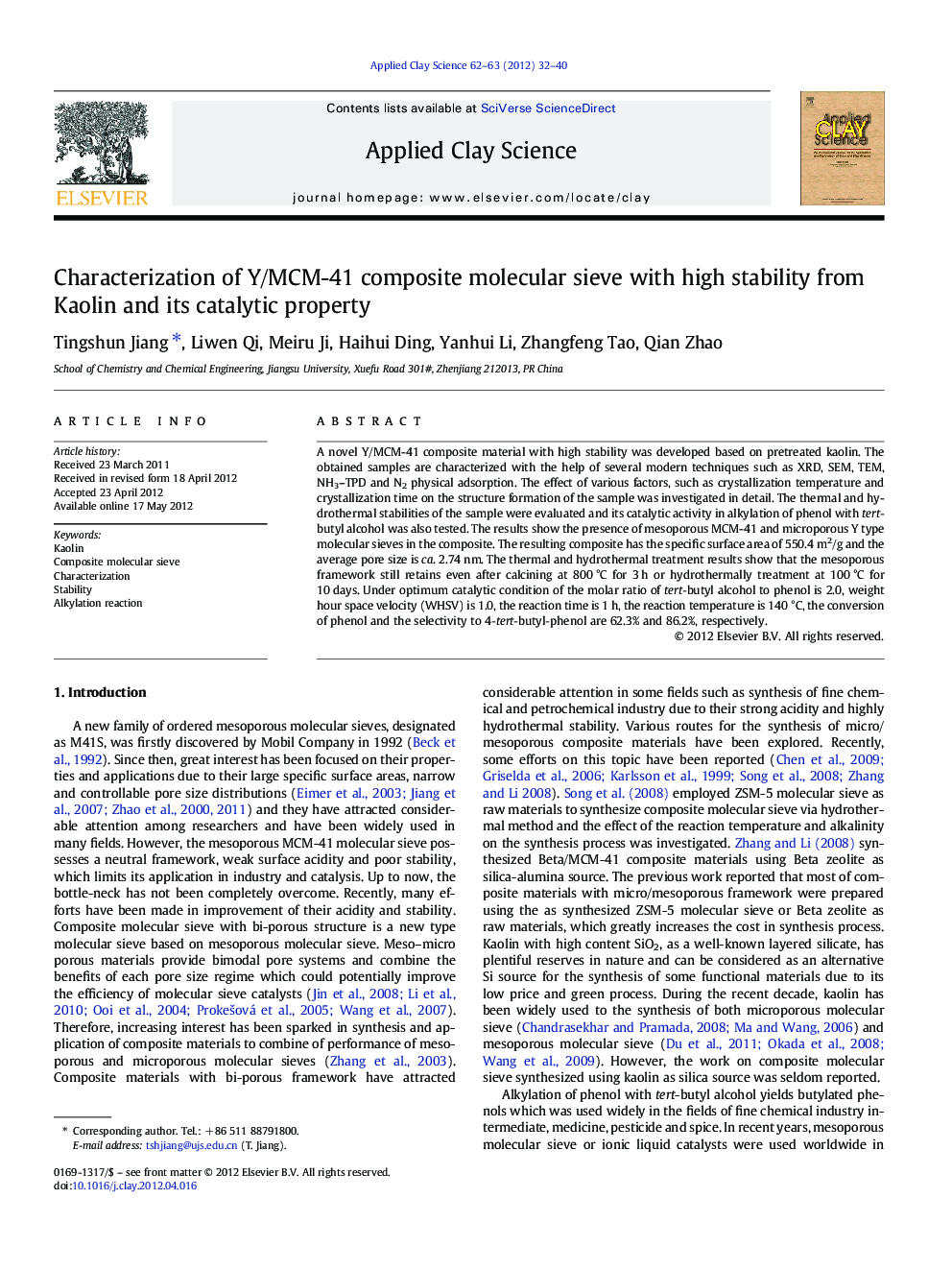| Article ID | Journal | Published Year | Pages | File Type |
|---|---|---|---|---|
| 1695233 | Applied Clay Science | 2012 | 9 Pages |
A novel Y/MCM-41 composite material with high stability was developed based on pretreated kaolin. The obtained samples are characterized with the help of several modern techniques such as XRD, SEM, TEM, NH3–TPD and N2 physical adsorption. The effect of various factors, such as crystallization temperature and crystallization time on the structure formation of the sample was investigated in detail. The thermal and hydrothermal stabilities of the sample were evaluated and its catalytic activity in alkylation of phenol with tert‐butyl alcohol was also tested. The results show the presence of mesoporous MCM-41 and microporous Y type molecular sieves in the composite. The resulting composite has the specific surface area of 550.4 m2/g and the average pore size is ca. 2.74 nm. The thermal and hydrothermal treatment results show that the mesoporous framework still retains even after calcining at 800 °C for 3 h or hydrothermally treatment at 100 °C for 10 days. Under optimum catalytic condition of the molar ratio of tert‐butyl alcohol to phenol is 2.0, weight hour space velocity (WHSV) is 1.0, the reaction time is 1 h, the reaction temperature is 140 °C, the conversion of phenol and the selectivity to 4‐tert‐butyl‐phenol are 62.3% and 86.2%, respectively.
Graphical abstractFigure optionsDownload full-size imageDownload as PowerPoint slideHighlights► Composite molecular sieve was successfully synthesized by two-step crystallization method using inexpensive kaolin as partial Si source. ► The resulting composite molecular sieve possesses good thermal and hydrothermal stabilities. ► The composite exhibits high catalytic activity due to the presence of strong acid sites.
